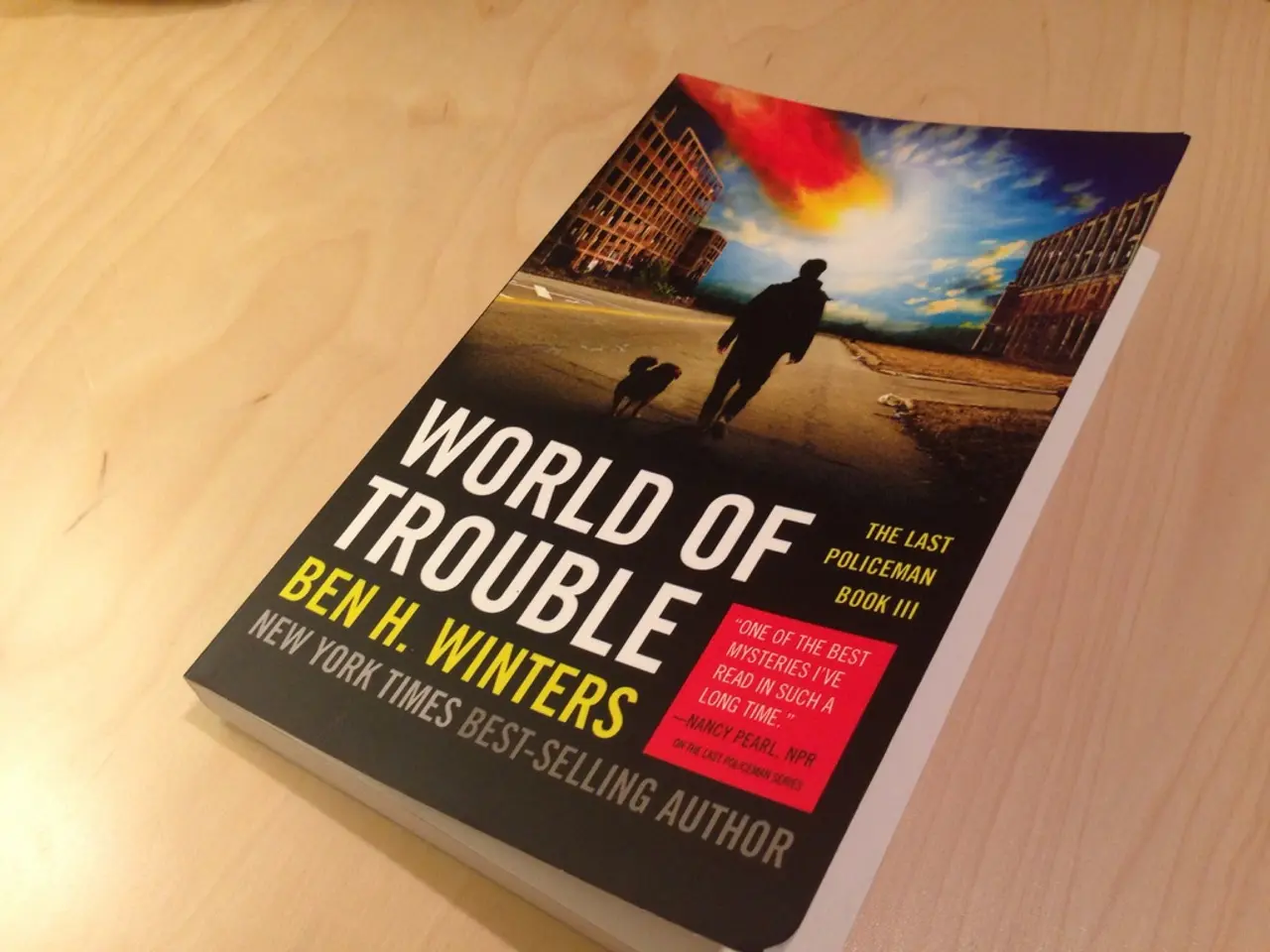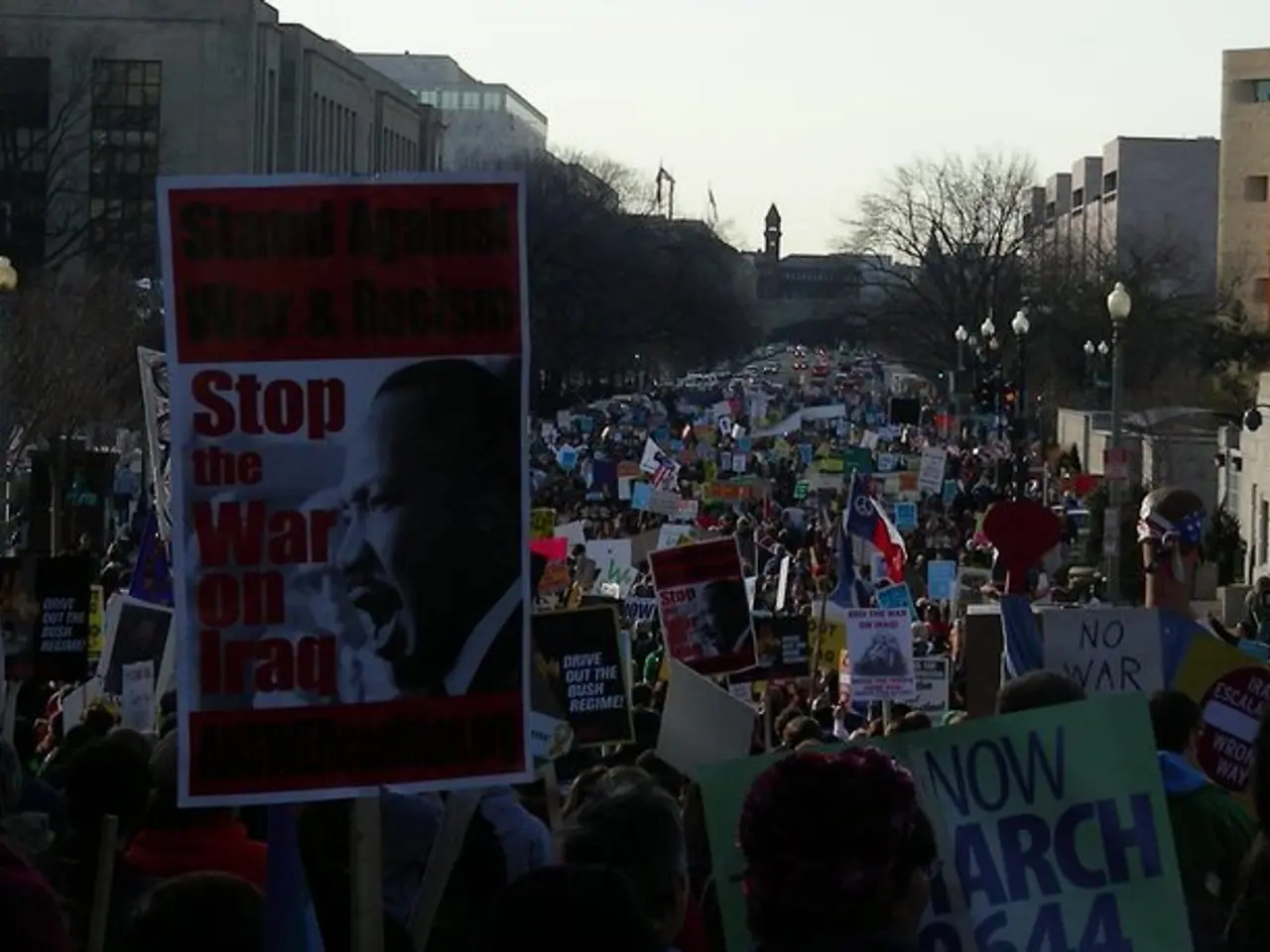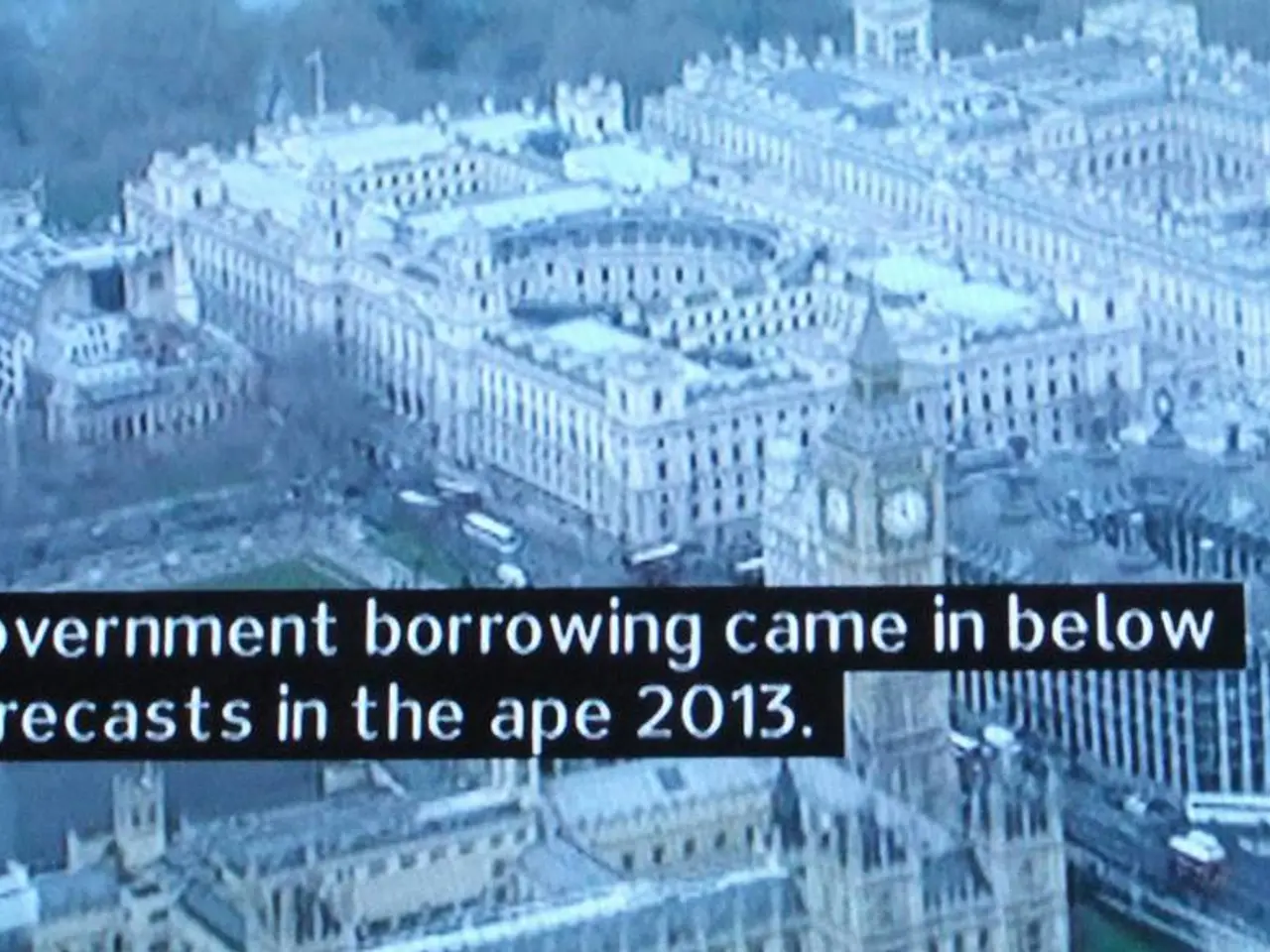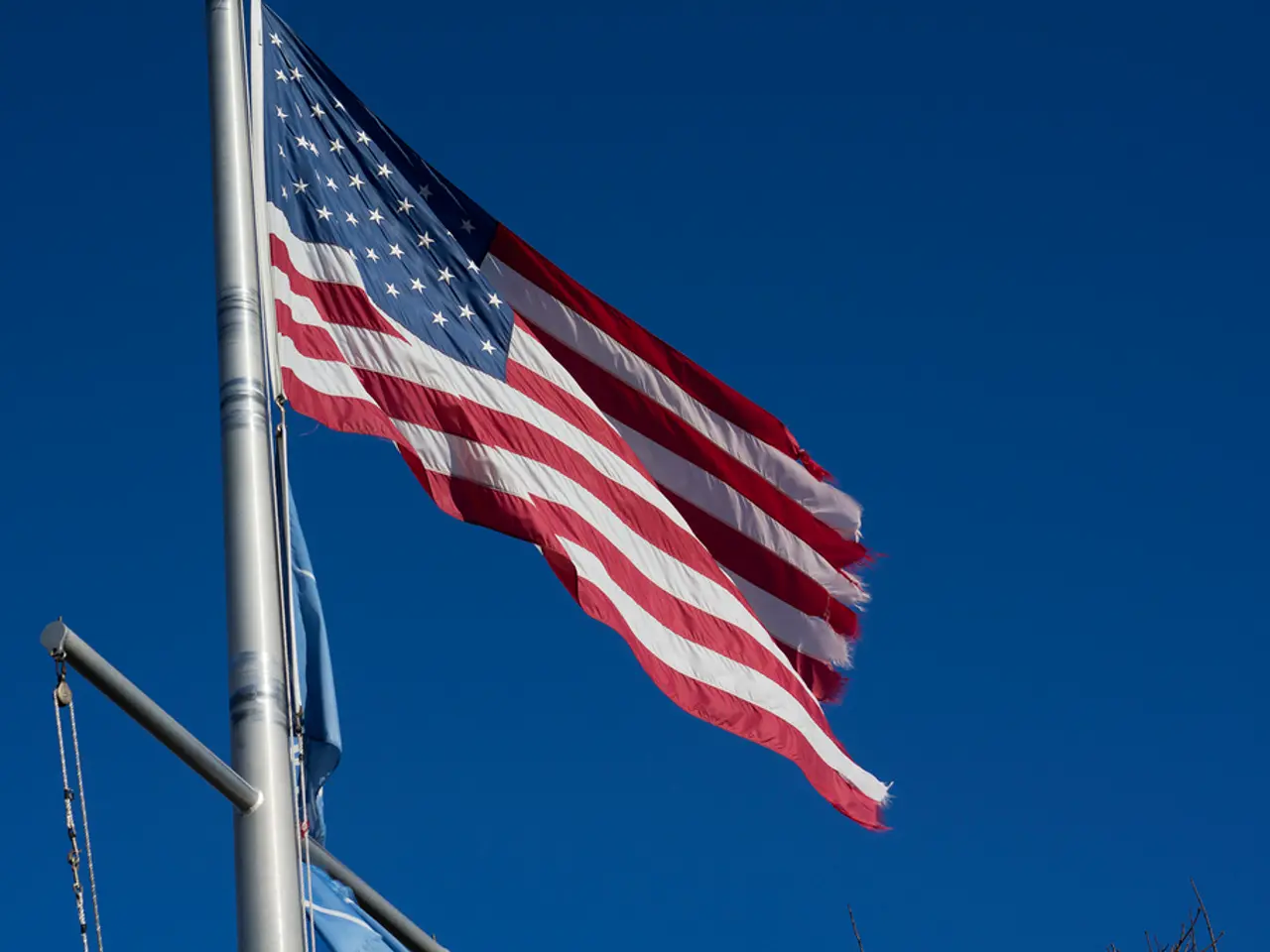Trump's Trade Agreement Failed to Materialize During Merz's Cancelled Honeymoon
German Chancellor Friedrich Merz is navigating a tumultuous political landscape, with significant economic and political challenges looming on the horizon. The US-EU trade tensions, particularly the imposition of US tariffs on EU imports effective August 2025, pose a direct threat to the German economy and complicate Merz's efforts to manage a coalition government.
A total of €1 trillion has been earmarked for military and related investments, as well as infrastructure improvements. However, doubts persist about the apportionment of 'green' investments, adding to Merz's woes.
The US tariffs are causing distress for key German industries, such as steel, which faces competition from China, high energy costs, and now US tariffs that undermine competitiveness. Merz has advocated for a comprehensive "steel strategy" to preserve Germany's domestic steel production and manage the transition towards greener, climate-friendly manufacturing.
The trade conflict has also contributed to turmoil within Merz’s coalition government, which is pushing for controversial social security reforms involving cuts to welfare benefits, pensions, and healthcare starting in autumn 2025. These reforms are met with resistance from Merz's coalition partner, the Social Democratic Party (SPD), creating internal tension and economic strain.
In an attempt to stimulate corporate investments, increased tax depreciation allowances for the next three years have been implemented. Corporate representatives have pledged to invest €631bn in the coming years. However, criticism persists about a delayed reduction in corporation tax, with conservative economists deeming the planned reduction as 'too little, too late'.
The US-European Union trade deal, announced on 27 July, is viewed as a heavy defeat for EU negotiators. French Prime Minister Francois Bayrou labelled the accord a 'dark day' for Europe, while Merz warned of 'considerable damage' to the German economy.
Reaction to the deal is more hostile in France than in Germany, opening potential for discord between Paris and Berlin. The CDU/CSU, Merz's coalition party, is polling neck-and-neck with the extreme right Alternative for Germany (AfD), further complicating the political landscape.
Merz has faced criticism over his turnaround on the debt brake reform, with many supporters disagreeing. The chancellor is also facing an uphill coalition battle with the SPD over the appointment of two SPD nominees for the constitutional court.
Despite these challenges, there is some optimism about the future, with estimates from Deutsche Bank suggesting that gross domestic product could rise as much as 2% in 2026. Policy-makers at the European Central Bank are also likely to be more open to a further quarter-point easing in interest rates when they meet on 10-11 September.
As Merz approaches his third month in office, he finds himself in a precarious position. The US-EU trade tensions, domestic political pressures, and economic strains are testing the chancellor's political stability and effectiveness. The coming months will be critical as Merz strives to balance the needs of his coalition, stabilise the economy, and maintain industrial competitiveness.
- The €1 trillion investment in military, infrastructure, and green investments raises questions about their allocation, adding to the sovereign's concerns.
- Artificial intelligence tools could provide valuable insights for optimizing these investments, particularly in the realm of economics and finance.
- The US tariffs on EU imports, especially on the steel industry, could lead to significant investment losses and increase the risk of war-and-conflicts in the region.
- Politics and policy-and-legislation may play a crucial role in mitigating these tariff-related issues, as well as the upcoming social security reforms causing turmoil within the coalition government.
- Other key industries like automobiles, with football (soccer) and sports-betting as two of its sub-sectors, also look at these policy decisions and their potential impacts on the European leagues, such as the premier league.
- Public policy should closely monitor the general-news, accidents (accidents related to cars, fires, or other incidents), and crime-and-justice sectors to ensure economic stability and industrial competitiveness.
- The uncertainties caused by the US-EU trade tensions and the proposed social security reforms may create a challenging investment environment, with potential losses in car-accidents insurance and marketing revenue for the automobile industry.
- The opposition from Merz's coalition partner, the Social Democratic Party, over the two SPD nominees for the constitutional court mirrors the resistance towards the controversial social security reforms.
- The upcoming quarter-point easing in interest rates by the European Central Bank might help soften the economic blow from the US tariffs and encourage public investments, thereby contributing to the projected 2% increase in GDP in 2026.
- In light of these complex challenges, Merz's effectiveness as the German Chancellor will be tested, requiring swift and decisive policy decisions to navigate the tumultuous political and economic landscape.
- The coalition government's decisions regarding trade agreements, social security reforms, infrastructure investments, and debt brake reform will have far-reaching implications, not only for the German economy but also for the broader European Union and the global economy at large.






